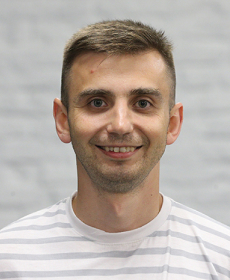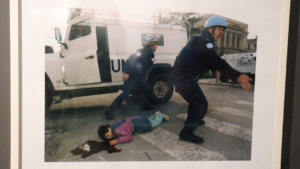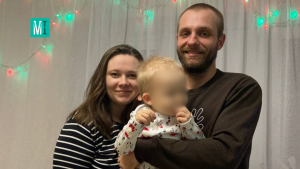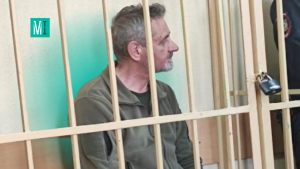Found unconscious on the road: the Mayor of Nadezhdivka Village has been treated for half a year after the Russian captivity
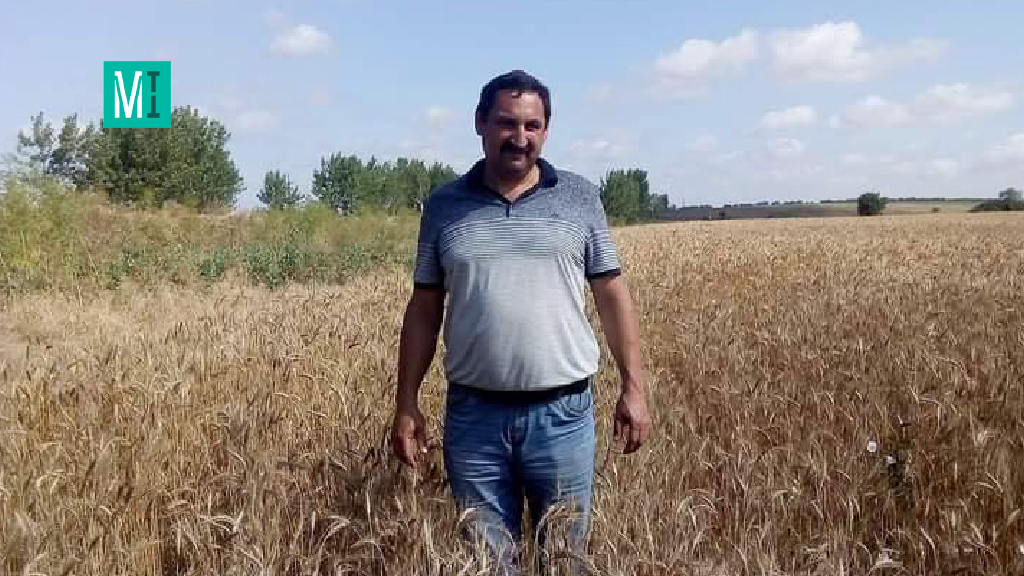
“We will tie you to an armored personnel carrier and drag you across the village,” the Russians threatened Oleksandr Ivchenko. In March of the last year, they barged into the Village of Nadezhdivka in the Kherson Region and started imposing their own order.
Oleksandr Ivchenko, a man with the pro-Ukrainian position, which he did not conceal even under the occupation, had been a mayor of Nadezhdivka for many years. He stayed in the village and, although he did not have direct power anymore, he was helping his fellow villagers. Due to shelling, Nadezhdivka often had electricity outages, and sometimes the water conduits would break through, so Mr. Ivchenko dealt with the repair and restoration of service lines together with other people from the village. And when the district authorities issued instructions to leave, the mayor responded that he could not abandon his village.
“A girl was wounded by shelling in our village. He and another man took her to a hospital via all Russian checkpoints,” tells the MIHR journalists Mrs. Natalia, Mr. Oleksandr’s wife. We meet her at a hospital in Kyiv, where Oleksandr is being treated.
The Russian military came to the mayor several times, wishing to settle in the school or in the kindergarten. Oleksandr wanted to preserve the property, so he persuaded the Russians not to go to the educational institutions but to settle in a building of the Village Council, from which he had taken out all the documents and hid them at home beforehand.
“Those soldiers kept going door to door, searching for weapons, asking where the Ukrainian Anti-Terrorist Operation (ATO) military were and who was opposed to Russia,” says Natalia.
Oleksandr would go out to the Russians and talk to them. He asked not to kick down the doors in the houses and not to break into the homes of the lonely and elderly. But they walked across it anyhow: barging in, knocking down, searching.
The “good” fellow villages told where the parents of an ATO military lived or the parents of the guys who were in the military ranks at the moment, or where there was an empty house in which they could settle or from which they could drag out something of value,” tells Natalia.
She says that what happened on September 21 was also caused by the fellow villagers. A black van with the letter Z on its hood and Russian soldiers inside drove to the Ivchenkos’ yard. They started knocking at the gates. When Natalia came out, they asked: “Where does the mayor live?”
“He does not live here,” Natalia answered, trying to protect her husband, as she had not seen those Russians in the village before, and they might not know the mayor’s address for sure.
But Oleksandr himself came out of the house at that moment. Without further ado, the Russians put a cap on his head, put him into the van, and said they were taking him to the city.
The city could have been Bilozerka, but it could also have been Kherson. Natalia was looking for her husband in both cities for nine days. A person on duty in Bilozerka Administration told the lady: “Yes, there was such a man. They had complained about him in the village that he carried on the Ukrainian propaganda.” But nobody said where Oleksandr was held.
Only on the ninth day they phoned Natalia and said that her husband had been found in the street between the Villages of Pryozerne and Bilozerka, bound, beaten, and unconscious. People called out an ambulance and took the man to a hospital.
The village hospital was left almost without doctors then. Only a young intern and a retired surgeon stayed.
“When I came to him, I was horrified. He didn’t look like himself, badly beaten, in the clothes of somebody else, without his phone and passport, which he had been told to take. He did not understand where he was and what had happened to him,” tells Natalia.
She hired a private ambulance to transport her husband to Kherson for treatment. But they lacked doctors there: the surgery department was closed, so Oleksandr was put into the neurological one, and then, on October 24, he was checked out. Though his state remained grave.
“There were no medications at the hospital, and we acquired them on our own,” recalls Natalia, “We had to treat him with Russian medications brought from the Crimea. And he had such a terrible allergy… The doctor said that the Ukrainian soul wouldn’t accept Russian medications.”
Nobody was to know after that Oleksandr was secretly brought home. “We were afraid that the Russians would come and finish him,” says Natalia.
The mayor told his wife he had been kicked and beaten with a stun gun, clubs, and hands. Because of that, his bones were broken in many places. Up to three occupants took part in the beating, one of them being a Ukrainian, according to Oleksandr. The man could even describe him: “A young one, with a mustache. He said that he was from Zaporizhia and he had been a policeman before.”
But Natalia says that her husband cannot talk much about the tortures, as the recollections make him feel even worse.
“They were offering him to collaborate, forcing him to give out the ATO military, those who were providing the data on Russian military and those who were coordinating that,” tells Mrs. Natalia.
On top of that, she continues, some of the locals were offended that Oleksandr Ivchenko, as a mayor, does not give out Russian humanitarian aid to people. That was her husband’s position of principle. “That was the reason,” assumes Natalia, “to sic Russians on him.”

The treatment at home was the only but inefficient way out for the Ivchenkos. Only the de-occupation of Kherson and the right-bank part of the Region could save Mr. Oleksandr, which happened on November 10, 2022. Oleksandr was sent to a hospital in Mykolayiv right away, then to Vinnytsia, and from there to Kyiv.
He has problems with his memory and coordination. Because of the beatings, Oleksandr Ivchenko has a severe head injury requiring long-term treatment and several surgeries. The family tries their best to put Oleksandr back on his feet.
Translated from Ukrainian by Olena Balatska


